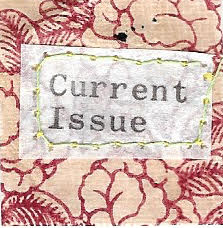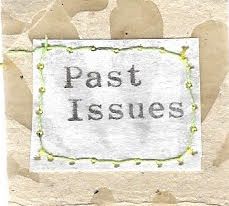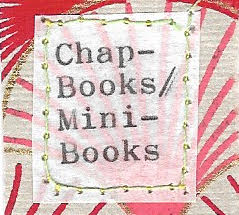Penny Skillman
Las Manos Arriba! Four Movie Reviews
In the last year I’ve been learning Spanish by watching films with Spanish subtitles I get at my neighborhood Russian- European store in San Francisco. James Bond to Lethal Weapon II, the gamut. These movies are one factor responsible for young men with assault weapons periodically blasting away in public places I’d argue. Simple conditioning. In these gun-filled movies the men get the girl, and all. Crimey! Because of this overload of violent movies, four films I came across stood out like leaf lettuce on a pizza. I’ve learned the Spanish words for shoot, goddamn, shit, and fuck by constant reiteration. No problema. But I found myself starting to throw films in the garbage after a while, and I’m not a censoring person, don’t believe in that. But with such an imbalance of subject matter, I felt I had to even things out on the smorgasbord table. Then I started thinking maternally, that I wouldn’t want a young son of mine to see this film. And so I started re-watching movies that might enlarge a more sociable Spanish vocabulary. (Although I can’t say I don’t like very much the phrase “Maldita Sea,” for “goddamnit.” It sounds perfectly cuss- like while somehow classy.)
Here’s four films I related to:
“84 Charing Cross Road,” starring Ann Bancroft and Anthony Hopkins, 1986, Columbia Pictures. A New York script writer, Helen Hanff, sends a letter off to a London antiquarian bookshop searching out English classics. The English bookseller answers her and a correspondence is struck that spans twenty years. It slowly reveals the characters and lives of these two and the people who work in the shop. Helen is a sarcastic, outspoken New Yorker, and Frank a reserved English husband and father with a deep love of books and the book trade. We get to see their day-to- day lives, dreams, and disappointments, as Helen works towards financially managing a trip to London to meet in person the booksellers at Charing Cross Road. She’s held up by her script reading and writing jobs, and finally the need to have a mouthful of expensive root canal work. So much like life. The pitch perfect dialogue in the letters led me to believe this story happened for the most part as she told it. Do these two classic book freaks fall in love? Of course, in a way, but it doesn’t represent the denouement of the relationship. Anti-climactic. Like real life. The acting is excellent. Much of it is conveying interior movement only; desire, wonder, sparks of humor, disappointment, etc. Fine to witness, and it vibrates one’s heartstrings. No nudity. No slobbering. No guns. Spanish words about writing and books.
“Notting Hill,” 1999, by Polygram Filmed/Entertainment, a romantic comedy starring Julia Roberts and Hugh Grant, takes place in London. One thing I love about English location portrayal is that the actors are real-looking – the exception here is the two stars – people like those we know, looking like we ourselves look, ordinary and with varying idiosyncrasies. And there’s that English wit. Maybe the film is somewhat unrealistic. But this I think is a credible essay on fame with its whistles and bells, its sinkholes and glue pots. And I wanted to be charmed by it. It’s not harmed, this movie, by the fact that the acting is some of the best I’ve seen in a rom-com. One scene of nudity -- no, two scenes of near nudity – or maybe three. Hugh Grant owns a book store in Notting Hill and tries to tell Julia Roberts what to buy. She doesn’t. Books; no pistols; one package. The Spanish word “lectura” means both” reading,” and “ reading matter.”
“Last Call,” about F. Scott Fitzgerald’s last years, 2002 by Showtime Networks, Inc., starring Jeremy Irons and Neve Campbell. I found after I got it home it had no Spanish subtitles after all, but it has beautiful 1930’s Los Angeles architecture inside and out. It’s based on a book, Against the Current, written by Frances Kroll King, who as a young woman worked in 1939-40 as Fitzgerald’s secretary while he struggled to put aside alcoholism and reclaim his renown as a first-rate literary writer. Another real life story. F. Scott totters between helpless has-been, financially drained writer, and hopeful come-back kid writing a new novel about the movie industry. (What he’d thought was a masterpiece, The Great Gatsby, didn’t sell well at the time of publication.) F. Scott had contempt, as did many writers, for the Hollywood movie industry. One pistol. One shot. One semi-nude scene. No physical violence. Zelda (Sissy Spacek) is a torturesome ghost, along with Scott’s past life of celebrity. He didn’t have a chance, F. Scott, not a chance in hell, once he came back to America. Yo lo se.
“Bandits,” with Billy Bob Thornton, Bruce Willis, and Cate Blanchett, made in 2001 by MGM. This movie is as far into violence as I’m willing to go nowadays, Spanish subtitles or no. But the violence in the film has reason. Despite pistols, rifles, and explosives, I couldn’t help but continue to watch, enticed by the beginning scene in which Billy Bob Thornton, prisoner and hypochondriac, runs to his pal Bruce Willis, who’s busy sparring in a boxing ring, to complain that the warden won’t allow the sale of fresh garlic in the commissary. He’s a health food type. Willis, an individualist in his own right, breaks them out of prison and along their escape route they meet Cate Blanchett. There’s medical talk, culinary talk, painting of fingernails, eastern philosophy, wit, and more. The Spanish word, “fingir,” means “to pretend.”
One of them doesn’t get the girl, no; and they leave America to go on to Mexico. Actually, this is an American movie with brains, beauty, and beast, in a slightly different mix, with a bit of density.
But don’t get a wrong notion.
I don’t dislike American films or America. At least, I didn’t until America voted in a sociopath as president. But I also don’t like that red stuff in my Organic Spring Mix either, the stuff that rots in just two days time despoiling it all.
Las manos arriba!, Hollywood! Drop yer guns and pull on this pointy hat.
© Penny Skillman 2020





